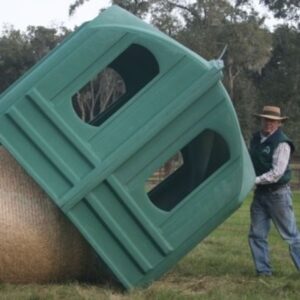 Hayhut Products are available at Kissimmee Valley Feed. Horse owners and livestock managers are always on the lookout for solutions that can keep their animals healthy and content. Enter Hayhut, a revolutionary product that is the leading covered round bale hay feeders for horses that deliver efficiency both in every day use and in cost.
Hayhut Products are available at Kissimmee Valley Feed. Horse owners and livestock managers are always on the lookout for solutions that can keep their animals healthy and content. Enter Hayhut, a revolutionary product that is the leading covered round bale hay feeders for horses that deliver efficiency both in every day use and in cost.
Feeding Efficiency
Hayhut is not just another hay feeder on the market. Its standout feature is the covered round bale design, which offers a range of benefits for both the animals and their caretakers. By providing a constant and protected source of forage, Hayhuts reduce waste and enhance feeding efficiency. Unlike traditional feeders, these structures ensure that even during adverse weather conditions, your livestock has access to fresh and dry hay, minimizing the chances of spoilage. This efficient feeding system helps to optimize the feed’s nutritional value, ensuring that your horses receive the best possible care.
The structure of the Hayhut is also worth noting. Made from robust, UV-stabilized polyethylene, these feeders are built to last. They resist rust and require no maintenance, unlike many metal feeders that degrade over time. This durability means that by investing in Hayhut, you’re choosing a long-term solution that won’t need frequent replacements or repairs, saving you both time and money in the long run.
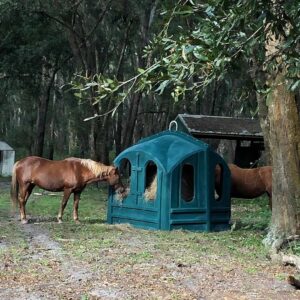 Reliable Forage
Reliable Forage
Overstocked pastures and poor forage growing conditions can be a nightmare for horse owners. Hayhuts provide a viable solution by offering a consistent and reliable source of forage, regardless of pasture conditions. This reduces the stress on pastures and allows grass to recover and grow more effectively.
By using Hayhut feeders, you can maintain a healthier pasture environment year-round. This is particularly beneficial during the dry season or in regions with challenging soil conditions. The result is a more balanced ecosystem that supports both your horses and the land they graze on.
Happy Horses
It is interesting to note how well these pasture feeders stop ‘big bale bickering’ and also how they bring a strong air of calmness and contentedness across the ranch as the horses all know that they have a constant source of forage.
Anyone who has managed a herd of horses knows the tension that can arise during feeding time. Fighting over bales is not just stressful for the horses, but it can also lead to injuries and uneven feed distribution. Hayhuts address this issue by providing ample access to hay for multiple horses at once.
The design encourages a more peaceful feeding environment, reducing competition and aggression among horses. This not only improves the overall well-being of your animals but also contributes to a calmer and more orderly atmosphere on the farm. For livestock managers, this added peace of mind is invaluable.
Whether you’re looking to improve feeding efficiency, reduce costs, or create a more peaceful environment for your horses, Hayhut offers a compelling solution. Join the ranks of satisfied horse owners and livestock managers who have made the switch and seen the benefits firsthand.
For farmers and ranchers in or around the Kissimmee, FL county, visit us or call the store at (407)-957-4100 to learn more about the haynut products available from our educated staff!





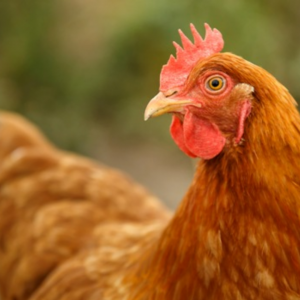 Ahh, the molting process. Shorter days and cooler temperatures…For people, it’s a sign that it is back to school time and fall. To chickens, it’s a sign that it is time to renew their feathers. Losing feathers and re-growing them is called molting and occurs every year when the days get shorter.
Ahh, the molting process. Shorter days and cooler temperatures…For people, it’s a sign that it is back to school time and fall. To chickens, it’s a sign that it is time to renew their feathers. Losing feathers and re-growing them is called molting and occurs every year when the days get shorter.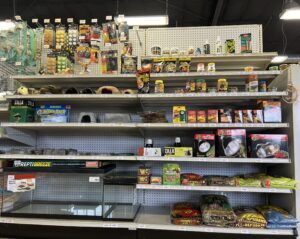 We are so excited to announce that we have reptile feed and supplies now available at Store #2! Whether you’re a proud owner of a gecko, turtle, or any type of lizard, we’ve got everything you need to keep your scaly friends happy and healthy. Our extensive inventory includes high-quality terrariums, efficient heat lamps, cozy shavings, and natural-looking rock habitats, along with a wide variety of feed that caters to all kinds of reptiles – so many, in fact, that we can hardly keep track!
We are so excited to announce that we have reptile feed and supplies now available at Store #2! Whether you’re a proud owner of a gecko, turtle, or any type of lizard, we’ve got everything you need to keep your scaly friends happy and healthy. Our extensive inventory includes high-quality terrariums, efficient heat lamps, cozy shavings, and natural-looking rock habitats, along with a wide variety of feed that caters to all kinds of reptiles – so many, in fact, that we can hardly keep track!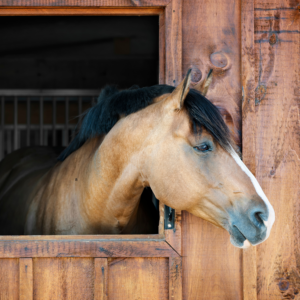 Internal parasites are a common problem in horses, particularly those managed on pasture. In addition to being a nuisance, internal parasites can cause serious health problems. These health issues include conditions such as weight loss, poor performance, colic, and intestinal obstruction. Establishing and maintaining a routine deworming schedule for your horses is an essential step to keep them healthy. However, a good deworming program should be tailored to the individual horse. The program should be based on factors such as age, pasture type, climate, and management style. Strategic deworming takes these factors into account. Additionally, a good deworming strategy helps prevent the development of resistance and strives to keep the deworming medications you use on your farm effective.
Internal parasites are a common problem in horses, particularly those managed on pasture. In addition to being a nuisance, internal parasites can cause serious health problems. These health issues include conditions such as weight loss, poor performance, colic, and intestinal obstruction. Establishing and maintaining a routine deworming schedule for your horses is an essential step to keep them healthy. However, a good deworming program should be tailored to the individual horse. The program should be based on factors such as age, pasture type, climate, and management style. Strategic deworming takes these factors into account. Additionally, a good deworming strategy helps prevent the development of resistance and strives to keep the deworming medications you use on your farm effective.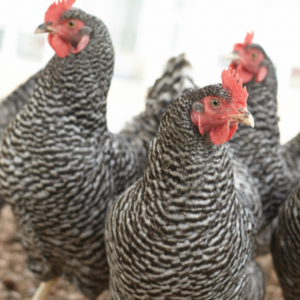 Switch laying hens to a complete chicken layer feed when they start laying eggs around 18 weeks of age. Choose a complete layer feed that includes all the essential nutrients laying hens need to lay strong and stay strong. Then make the transition gradually over one week.
Switch laying hens to a complete chicken layer feed when they start laying eggs around 18 weeks of age. Choose a complete layer feed that includes all the essential nutrients laying hens need to lay strong and stay strong. Then make the transition gradually over one week.